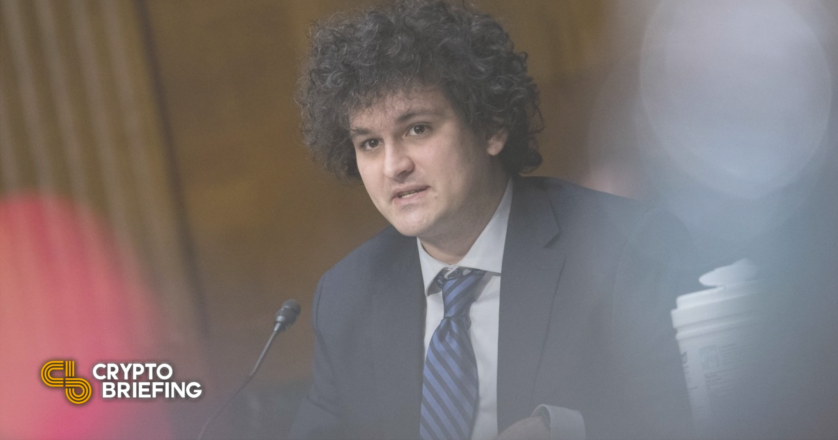Daily Briefing: Regulation Sam
The FTX boss has stirred controversy by proposing regulatory guidelines that no one is particularly happy with.

Key Takeaways
- FTX CEO Sam Bankman-Fried released a lengthy set of regulatory proposals yesterday that have drawn the ire of the crypto world.
- While many of the recommendations are level-headed, critics argue that others are antithetical to the industry's ethos.
- SBF has maneuvered himself into a position of both mainstream notoriety and political clout, however, so his thoughts will carry weight.
Share this article
Crypto enthusiasts have been vocally outraged since Sam Bankman-Fried released his controversial regulatory proposals yesterday afternoon, but the FTX boss likely has his own endgame in mind.
The Man Who Would Be Crypto King
Sam Bankman-Fried, the FTX exchange CEO and mainstream media darling, has been a topic for several of my pieces this year. In April, I covered him when he bizarrely likened crypto yield farming to a giant Ponzi scheme on Bloomberg’s Odd Lots podcast, then again in June when FTX moved in to bail out distressed crypto lending platforms BlockFi and Voyager Digital.
However, today’s topic is regulation, or more specifically, Sam’s views on what industry standards for crypto regulation should look like. Last night, the FTX boss published a lengthy document weighing in on everything from sanctions to stablecoins and much more in between. There’s a lot to get through, so without further ado, let’s dig in.
A lot of what Sam proposes is fairly sensible stuff. For dealing with hacks and exploits, Sam lays out a “5-5 standard” that puts customer remuneration at the forefront of any potential white hat resolutions. He also provides a compelling case for tokenized securities, explaining how the current clearing house architecture disadvantages investors and perpetuates unnecessary counterparty risks compared to blockchain solutions (It’s worth noting that facilitating tokenized securities appears to be part of Sam’s endgame for FTX).
However, on some topics, Sam’s regulatory musings have ruffled feathers with other industry figureheads. Sam appears to take a capitulatory approach regarding sanctions and anti-money laundering procedures, advocating for widely circulated blocklists of sanctioned addresses dictated by government agencies like OFAC. It’s not surprising that people take issue with this idea. Fighting against the government arbitrarily dictating who does and doesn’t have access to money is one of the main reasons blockchains gained popularity in the first place. Crypto is supposed to promote not only financial access but also financial freedom. But for Sam and his business machinations, only the former seems important for his bottom line.
Another point of contention is Sam’s ideas surrounding DeFi. Although he advocates for developer freedom and a “decentralized code as speech” approach, his views also place unfair burdens on protocols that wish to serve U.S. users. Under his standards, DeFi front ends would need to register as broker-dealers and implement KYC checks. Again, it’s interesting how if these regulations came to pass, they would benefit centralized multi-billion dollar companies like FTX at the expense of “little guy” DeFi protocols.
To me, Sam’s regulatory standards look like an attempt to ride two horses with one ass. He wants to get in the regulator’s good books by being proactive toward U.S. regulation and capitulating to the current state of play regarding OFAC’s Tornado Cash sanctions and the SEC’s aggressive posturing. However, he’s also trying to maintain his reputation among crypto diehards as someone truly invested in the future of crypto technology. To the casual observer, Sam may appear to be doing both, but to those deep in the space, his actions seem to be registering as more slimy and self-serving.
Whether we like it or not, the media has made Sam the main liaison between crypto and the rest of the world, missing no opportunity to laud his “effective altruism” or slap his face on the cover of another magazine. He holds considerable sway, both over financial elites (see his Bahamas conference with Blair and Clinton) and the general public. On the bright side, Sam is receptive to hashing out his ideas with others on Twitter, so if the crypto community can formulate actionable alternatives, there’s a chance Sam’s opinions can be changed.
Disclosure: At the time of writing this newsletter, the author owned ETH, BTC, FTT, and several other cryptocurrencies. The information contained in this newsletter is for educational purposes only and should not be considered investment advice.
Share this article
